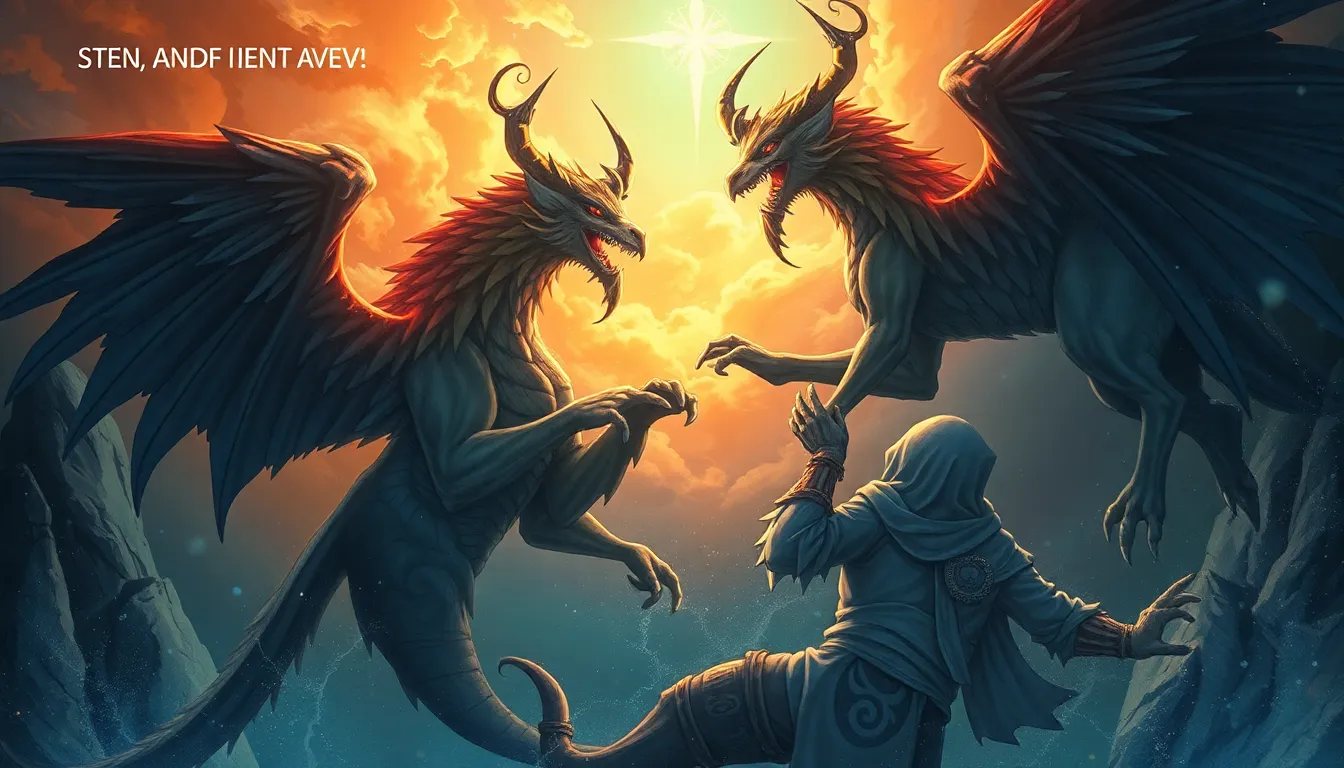The Quest for the Chosen One: Myths of Destiny
Introduction: Understanding the Concept of the Chosen One
The “Chosen One” trope is a prevalent narrative device in storytelling, representing a character selected by fate, destiny, or a higher power to achieve a significant purpose. This character often embarks on a journey to fulfill their predetermined role, confronting challenges and adversaries along the way.
Historically, the concept of the Chosen One can be traced back to various mythological and literary traditions. From ancient heroes to modern-day protagonists, the idea of destiny plays a crucial role in shaping narratives that resonate with human experiences and aspirations.
In human storytelling, destiny serves not only as a plot device but also as a means to explore themes of purpose, identity, and the struggle against fate. The allure of being “chosen” reflects a deep-seated desire for significance in a complex and often chaotic world.
Mythological Roots: Chosen Ones in Ancient Cultures
Across ancient cultures, figures deemed “chosen” often symbolize the intersection of humanity and divinity. In Greek mythology, heroes such as Hercules and Perseus were selected for extraordinary quests, facing trials that tested their strength and character.
Norse and Egyptian myths also highlight the role of prophecy in identifying chosen figures. For instance:
- Odin’s Prophecies: In Norse mythology, Odin often reveals destinies through prophecies that guide heroes like Sigurd.
- Ra’s Chosen: In Egyptian beliefs, pharaohs were considered chosen by the gods to maintain order and harmony.
In the Abrahamic traditions, the story of Moses exemplifies divine selection. Chosen to lead the Israelites out of Egypt, Moses embodies the theme of liberation, illustrating how destiny intertwines with moral obligation.
Literary Archetypes: Evolution of the Chosen One in Fiction
The Chosen One trope has evolved through various literary movements, adapting to the cultural contexts in which stories are told. Classic literature features iconic examples such as:
- King Arthur: The legendary king, destined to unite Britain, symbolizes the ideal of noble leadership.
- Odysseus: In Homer’s “Odyssey,” Odysseus is fated to return home, showcasing the hero’s journey and the struggle against fate.
The romantic hero archetype has had a significant impact on the Chosen One narrative, emphasizing individualism and emotional depth. These characters often grapple with their identities, reflecting the complexities of human experience.
Modern Interpretations: The Chosen One in Contemporary Media
In contemporary media, the Chosen One trope continues to thrive, particularly in films and television shows. Iconic characters such as Harry Potter and Neo from “The Matrix” demonstrate the enduring appeal of this narrative device.
Within the realms of fantasy and science fiction, the Chosen One often represents the struggle between good and evil, as seen in:
- Harry Potter: Chosen to defeat Voldemort, Harry embodies the classic hero’s journey.
- Neo: In “The Matrix,” Neo discovers his role in a larger battle against oppression, symbolizing awakening and self-discovery.
The appeal of the Chosen One in modern storytelling lies in the relatable themes of self-discovery, purpose, and the quest for meaning in an often chaotic world.
Psychological Perspectives: Why We Relate to the Chosen One
Psychological theories provide insight into why the Chosen One resonates with audiences. Concepts of identity and destiny suggest that individuals often seek to identify with characters who embody their aspirations and fears.
Chosen figures hold significance in both personal and collective consciousness. They reflect:
- The struggle for individual identity in a complex society.
- The shared human experience of facing adversity and seeking purpose.
Moreover, the Chosen One narrative mirrors modern societal aspirations, addressing themes of empowerment, resilience, and the desire to make a meaningful impact.
Critiques of the Chosen One Archetype
While the Chosen One trope has been celebrated, it also faces critiques regarding its limitations and stereotypes. Common concerns include:
- Over-reliance on a singular hero, neglecting the contributions of diverse characters.
- The potential for reinforcing harmful stereotypes, particularly regarding gender and ethnicity.
Recently, narratives have begun to subvert the Chosen One trope, exploring “not the chosen one” stories that challenge traditional heroism. This shift broadens the scope of representation and invites audiences to consider alternative paths to heroism.
Cultural Variations: Chosen Ones Across the Globe
The concept of the Chosen One varies across cultures, reflecting unique values and beliefs. A comparative analysis reveals:
- Eastern vs. Western Perspectives: Eastern narratives often emphasize collective duty, while Western narratives highlight individualism.
- Cultural Heroes: Figures like Sun Wukong in Chinese mythology illustrate how cultural heroes shape national identities and moral values.
These variations enrich the global narrative landscape, showcasing the diversity of interpretations surrounding the idea of destiny and selection.
The Role of Destiny vs. Free Will in the Chosen One Narrative
The philosophical debate surrounding destiny, fate, and free will plays a critical role in the Chosen One narrative. Different stories balance these concepts in various ways:
- Some narratives emphasize predestination, where the Chosen One’s fate is inescapable.
- Others explore the tension between destiny and personal choice, highlighting the hero’s struggle for autonomy.
The implications of believing in a predetermined path challenge audiences to reflect on their own lives, aspirations, and the choices they make along the way.



